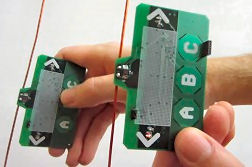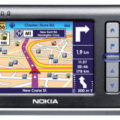
An intriguing new study in the journalPsychonomic Bulletin & Review shows there is a link between the meaning and interpretation of words and the letters they are composed of – a relationship the researchers have called the QWERTY effect.
Cognitive scientists Kyle Jasmin of University College London and Daniel Casasanto of The New School for Social Research (New York) collaborated on the work which shows that words spelled with more letters on the right of the keyboard are associated with more positive emotions than words spelled with letters on the left.
In a series of three experiments, the researchers investigated whether differences in the way words are typed corresponded to differences in their meanings. They found that the meanings of words in English, Dutch and Spanish were related to the way people typed them on the QWERTY keyboard.
Specifically, words with more right-side letters were rated more positively in meaning than words with more left-side letters. The effect was visible in all three languages and was not affected by word length, letter frequency or handedness, say the researchers.
The QWERTY effect was also evident when people judged the meanings of fictitious words like “pleek,” and was strongest in new words and abbreviations like “greenwash” and “LOL.”
As to why the right side of the keyboard should generate more positive feelings, the researchers suggest that because there are more letters on the left of the keyboard midline than on the right, letters on the right might be easier to type, which could engender positive feelings. Or to put it another way, when people type words composed of more right-side letters, they have more positive feelings, and when they type words composed of more left-side letters, they have more negative feelings.
The QWERTY effect challenges the traditional view that the meanings of words are independent of their forms, say the researchers. “People responsible for naming new products, brands, and companies might do well to consider the potential advantages of consulting their keyboards and choosing the ‘right’ name,” they conclude.
Related:
Discuss this article in our forum
Say what? Ambiguity makes language more efficient
Language transforming medicine… for the worse
Couples’ language use predicts relationship success
“Language” Gene Pooh-Poohed








Comments are closed.